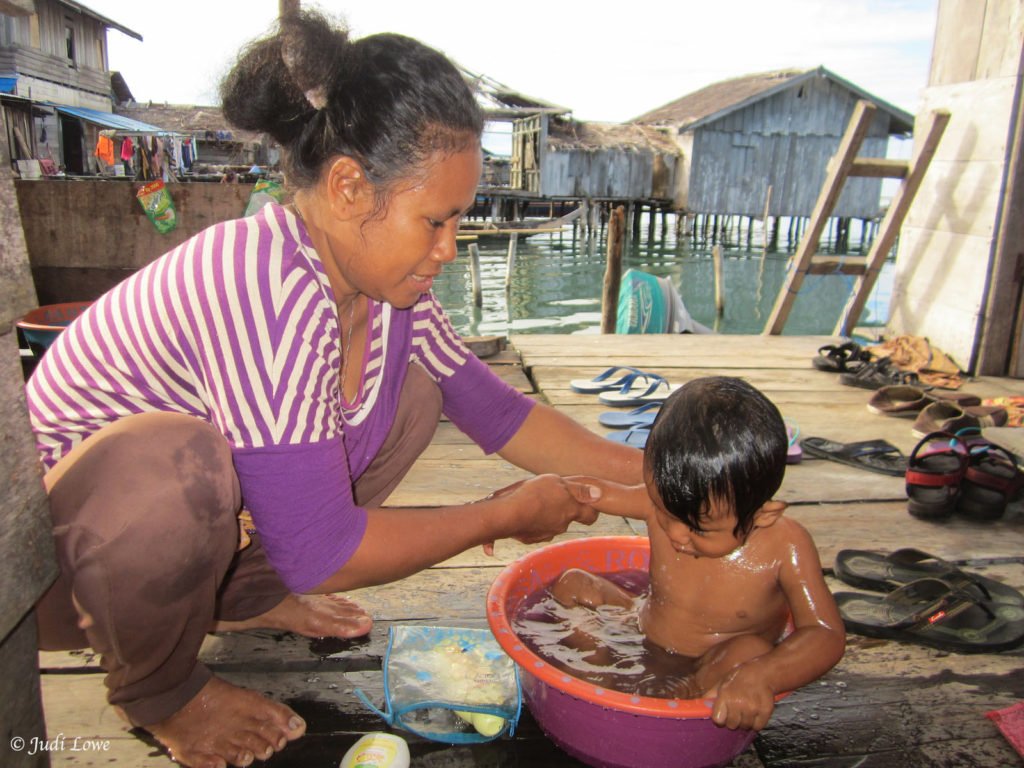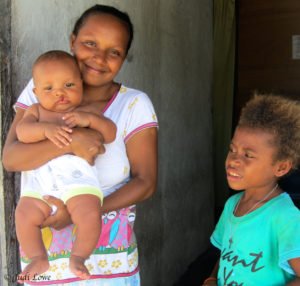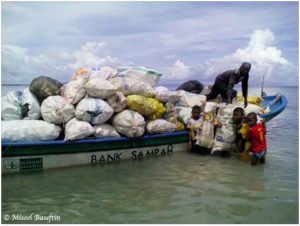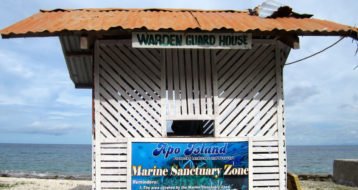livelihoods for communities
Providing livelihoods to local fishing communities from dive tourism in the form of community benefit programs has the advantage of spreading a benefit across the community, rather than to a small number of individual families. One idea behind providing livelihoods to communities is that when communities identify financial and in-kind benefits that come to them directly from dive tourism on their coral reefs, they will be more inclined to protect coral reef resources to ensure that the continue to earn livelihoods from those resources. It is thought that with education and livelihoods, communities become partners in conserving coral reefs and that livelihoods from dive tourism allow communities to reduce their reliance on coral reef resources. This research tests those assumptions.

Bath time in a water village in southern Raja Ampat, Indonesia
The most common types of community benefit programs provided by dive operators to local fishing communities are:

School in the Alor region, Indonesia
Schools
Livelihood contributions to schools by dive operators can be as simple as donating textbooks and materials or more complex, in paying teachers or building and managing kindergartens.

Mother and children in Raja Ampat, Indonesia
Health
Livelihood contributions by dive operators to community health can be as simple as providing a range of pain killers and medications or more complex, in establishing infant and maternal health care programs.

Misool Baseftin’s Bank Sampah project, Raja Ampat, Indonesia
Rubbish recycling
The disposal of rubbish is a major issue in many less developed countries and territories of the tropics. Livelihood contributions by dive operators can be as simple as helping villages clean their foreshores around coral reefs or more complex, in establishing recycling projects where communities are paid to collect, sort and store rubbish which is later picked up for recycling.



















